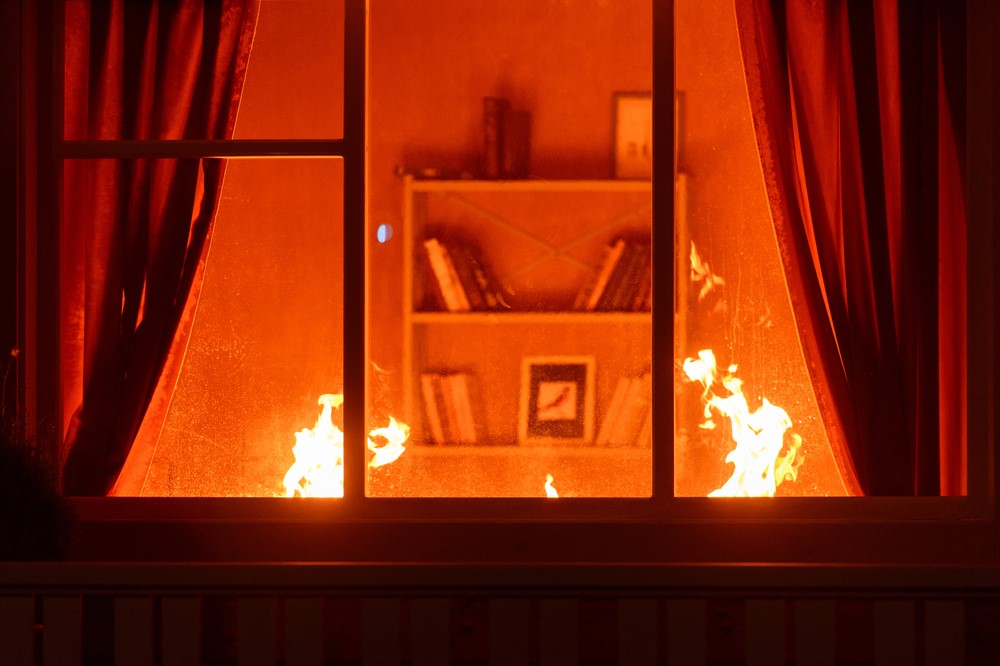There were over 27,000 structural fires in NYC in 2018. It’s important to know how insurance can help if it happens to you.
Data from the U.S. Fire Administration shows that New York is above the average when it comes to incidents of structural and residential fires. Aside from the massive amounts of damage which follow a blaze ($6.5 billion annually), the incident report from the New York City Fire Department (FDNY) for May 2019 records over 3,000 structural and non-structural fire outbreaks since January.
The FDNY’s report for 2018 recorded over 27,000 structural fires causing 81 deaths. It’s clear that not only is fire insurance a good idea for everyone but this goes double for New Yorkers. Fire insurance is designed to cover structures and property against damage caused by fire and associated smoke. These damages may be outright losses or partial ones—and the costs of replacement or repair are vastly mitigated by a policy.
Let’s look at fire insurance more closely to see what it covers under different circumstances.
Fire insurance for homeowners
Some homeowners policies include a degree of fire insurance as standard, but this may not be enough to satisfy the holder’s needs. In that case, separate fire insurance coverage can be taken out on top of that provided by the homeowner’s policy.
Fire insurance also provides some coverage against water damage. This may sound strange at first, but fire can require a great deal of water to put out, and that can do further damage to a home and its contents. Fire insurance should also cover homeowners if the home becomes uninhabitable after a fire and forces them to pay for temporary accommodations and additional living expenses (ALE) elsewhere. Be sure to keep all receipts to support an ALE claim.
The home is usually covered regardless of whether the fire originates from inside or outside. Damage to nearby structures is also covered. These policies often last a maximum of one year before renewal is necessary. The permanent loss of an entire home may see the homeowner’s policy pay out the home’s current market value (which may be less than it was purchased for), making it important for homeowners to keep tabs on that figure.
If the home contains any items of sentimental or high value, it’s recommended that extra coverage be taken out on an item-by-item basis since fire insurance typically only covers contents for 50 to 70 percent of the policy value.
Another important fact: fire damage to a home is not covered if the home has been vacant for more than 30 days consecutively. Homeowners expecting such a vacancy should consider “vacant homeowners coverage.”
Does renters insurance cover fire?
Renters insurance does protect against damage to the tenant’s belongings from fire or smoke (providing they didn’t start it), whether that comes from their dwelling or a fire in a nearby one. Tenants don’t need to be concerned with the costs of such damage to the overall structure itself, given that the landlord has a policy.
It’s a very good idea for renters to document their possessions for insurance purposes and, like homeowners, insure any items of special value under their own coverage. ALE expenses are covered to a degree in many renters insurance policies, just as with homeowners policies.
Conversely, a landlord’s insurance will payout for damage to the structure and any furnishings or fittings not belonging to the tenant. Landlords are not responsible for fire damage to a tenant’s possessions—providing the landlord can verify that all required fire prevention measures were taken.
Landlords should be aware that they may have to engage in fire repairs beyond restoring the rental to its original state. The reason for this is that city or county building-code requirements may have changed since the property was originally built. This could be an expensive adjustment, making building ordinance coverage a prudent addition to fire insurance.
Fire insurance and business properties
Since a business property is basically a home for operations, coverage is very similar to a homeowners policy. Fire insurance will cover the structure and the inventory and equipment within it, along with any attached structures and some detached ones.
Fire coverage is usually a part of a business owners policy or a commercial property policy and may also provide for off-premises operating expenses if occupants are forced out while repairs or reconstruction takes place.
This is a critical distinction between domestic and commercial fire insurance. Displaced homeowners may have to tolerate unfamiliar surroundings for a while, but a business stands to lose a great deal of money if operations must relocate or perhaps close for the interim. Fire insurance may not be enough to mitigate losses, so business owners may feel that business income insurance is also necessary.
It’s wise for modern businesses to back up all important data and documents in removable or off-site media like physical drives or the cloud. A fire could wipe out records and valuable paperwork and hardware, causing lasting damage to operations and client relationships. Back up data offsite whenever possible.
Stay informed before cashing in a policy becomes necessary
We recommend following the U.S. Fire Administration’s Prevention and Education page, which provides plenty of updates and resources on staying safe from fire. For more information on staying financially protected through different kinds of insurance, get in touch with NICRIS at the links below.
At NICRIS Insurance, our experienced team reviews every client’s personal circumstances to find the best deal possible. NICRIS Insurance provides a free, personalized review or you can connect with us by dropping us a line!

